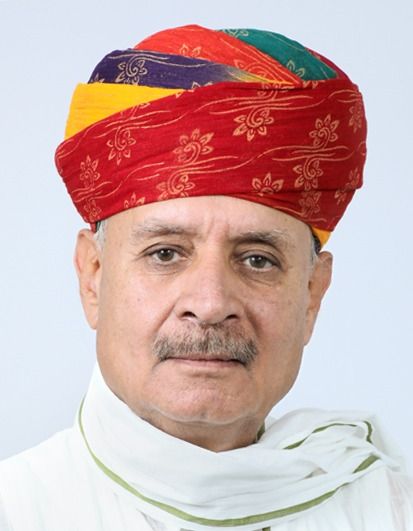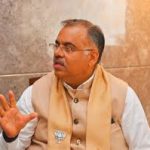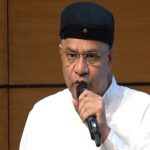In a country as vast and varied as India, the true measure of progress lies not merely in GDP figures or infrastructure milestones but in how well a nation nurtures its people. Human capital—our education, skills, health, and productivity—is not just an economic asset but a moral imperative. Over the last ten years, a quiet yet formidable revolution has taken shape under the stewardship of India’s premier policy think tank, NITI Aayog, reshaping how the country invests in its most valuable resource: its citizens.
In a nation where over 65% of the population is below the age of 35, the demographic dividend presents a once-in-a-generation opportunity. But the sheer scale of this young population brings enormous responsibility. The challenge lies in converting youthful energy into a force for economic growth and national development. This is where NITI Aayog has emerged as a visionary catalyst—charting a roadmap not just for today’s progress but for tomorrow’s prosperity.
Over the last decade, NITI Aayog has evolved from a think tank into a reformist engine and an execution partner, known for bold ideas backed by data, collaboration, and human-cantered design. It has transformed policymaking from a top-down exercise to a dynamic process of cocreation with states, private players, global institutions, and civil society. Its strength lies not just in planning, but in listening—and turning those insights into action.
Education, the bedrock of human capital, has witnessed a complete reimagining under its guidance. Recognizing that access alone isn’t enough, NITI Aayog pushed for quality and equity. The National Education Policy 2020, where it played a pivotal role, ushered in a new era—shifting from rote learning to critical thinking, flexibility, and vocational integration. It emphasized early childhood education, mother-tongue instruction, and seamless transitions between disciplines. Through initiatives like the Atal Innovation Mission, it ensured both accountability and imagination—embedding innovation in over 10,000 Atal Tinkering Labs that now dot the country.
Skilling India’s youth for the 21st century has been another cornerstone of its mission. From backing the Skill India Mission to ensuring that vocational programs reach the heart of underserved districts via the Aspirational Districts Programme, NITI Aayog has helped bridge the gap between classroom and career. Under Skill India Mission, more than 1.5 crore youth have been trained through initiatives that blend technology, industry linkages, and demand- driven curricula. It didn’t just train for training’s sake—it mapped sectoral needs and designed programs that opened real economic doors for India’s rural and urban youth alike.
In parallel, it championed a dynamic, inclusive labour market. It supported the rationalization of 44 central labour laws into four simplified codes—on wages, social security, industrial relations, and occupational safety. These reforms balanced employer flexibility with worker protection, particularly benefiting informal sector workers who make up the majority of India’s workforce. By simplifying compliance and encouraging formalization, the workplace became not only more productive but also more humane.
Healthcare, often seen as a cost, was reframed as an investment. NITI Aayog helped architect the shift from reactive treatment to proactive wellness. The flagship Ayushman Bharat scheme, backed and monitored by NITI Aayog, provided over 50 crore Indians with health insurance, while more than 1.5 lakh Health and Wellness Centres took primary care to the grassroots.
Programs targeted nutrition, maternal and child health, mental well-being, and noncommunicable diseases—aiming not just to heal the sick, but to keep people healthy. The COVID-19 pandemic tested the resilience of India’s health system like never before. In this crisis, NITI Aayog stood tall—partnering with the Ministry of Health and ICMR to model infection patterns, ensure equitable medical resource allocation, and roll out platforms like eSanjeevani for telemedicine. Its post-pandemic vision emphasized not just recovery, but readiness—pushing for public health management cadres and modern digital health infrastructure.
Beyond these domains, NITI Aayog has been a lighthouse for entrepreneurship and innovation. Programs like Start-Up India, Stand-Up India, and the Atal Innovation Mission created a fertile ecosystem for ideas to flourish. Thousands of start-ups in fintech, EdTech, aggrotech, healthtech, and clean energy are thriving today because they had policy support, incubation, and mentorship at crucial stages. These are not just businesses; they are job creators and problem solvers, contributing to a resilient and self-reliant India.
But perhaps its greatest achievement lies in how it has institutionalized a culture of evidence based policymaking. By leveraging big data, artificial intelligence, real-time dashboards, and rigorous monitoring frameworks, it ensured policies remain adaptive, accountable, and aligned with ground realities. Whether it was launching India’s first SDG Index, guiding states on performance metrics, or using behavioural insights for policy design, NITI Aayog brought scientific thinking to the heart of governance.
Its ability to convene and coordinate across ministries and sectors made it more than an advisory body—it became the conscience-keeper of development. It encouraged healthy competition among states through performance-based rankings, worked with civil society to amplify voices from the margins, and engaged global partners to bring the best practices home. India’s rising position in the Global Innovation Index and the praise from institutions like the UN, World Bank, and UNESCO reflect the world’s recognition of this effort.
More than just achieving targets, NITI Aayog has focused on creating systems that are sustainable, inclusive, and future-ready. Its commitment to the Sustainable Development Goals is evident in every initiative—from clean energy transitions to green mobility, from digital public infrastructure to gender equity in workspaces.
India’s rise as a knowledge economy is no longer a distant dream—it is a work in progress, propelled by policies that see people as the nation’s greatest asset. What NITI Aayog has done is elevate the discourse around development, reminding us that true progress is measured not by the tallest buildings or biggest factories, but by the strength, health, and dignity of its people.
In doing so, it has become more than a think tank. It has become the pulse of a young, aspiring India—an India that dreams, dares, and does. And at the heart of this story is the quiet confidence that when you invest in people, you build not just a better economy, but a better nation.
(Author is Minister of State (Independent Charge) Ministry of Statistics and Programme Implementation; Planning and Minister of State, Culture. Courtesy: PIB)








